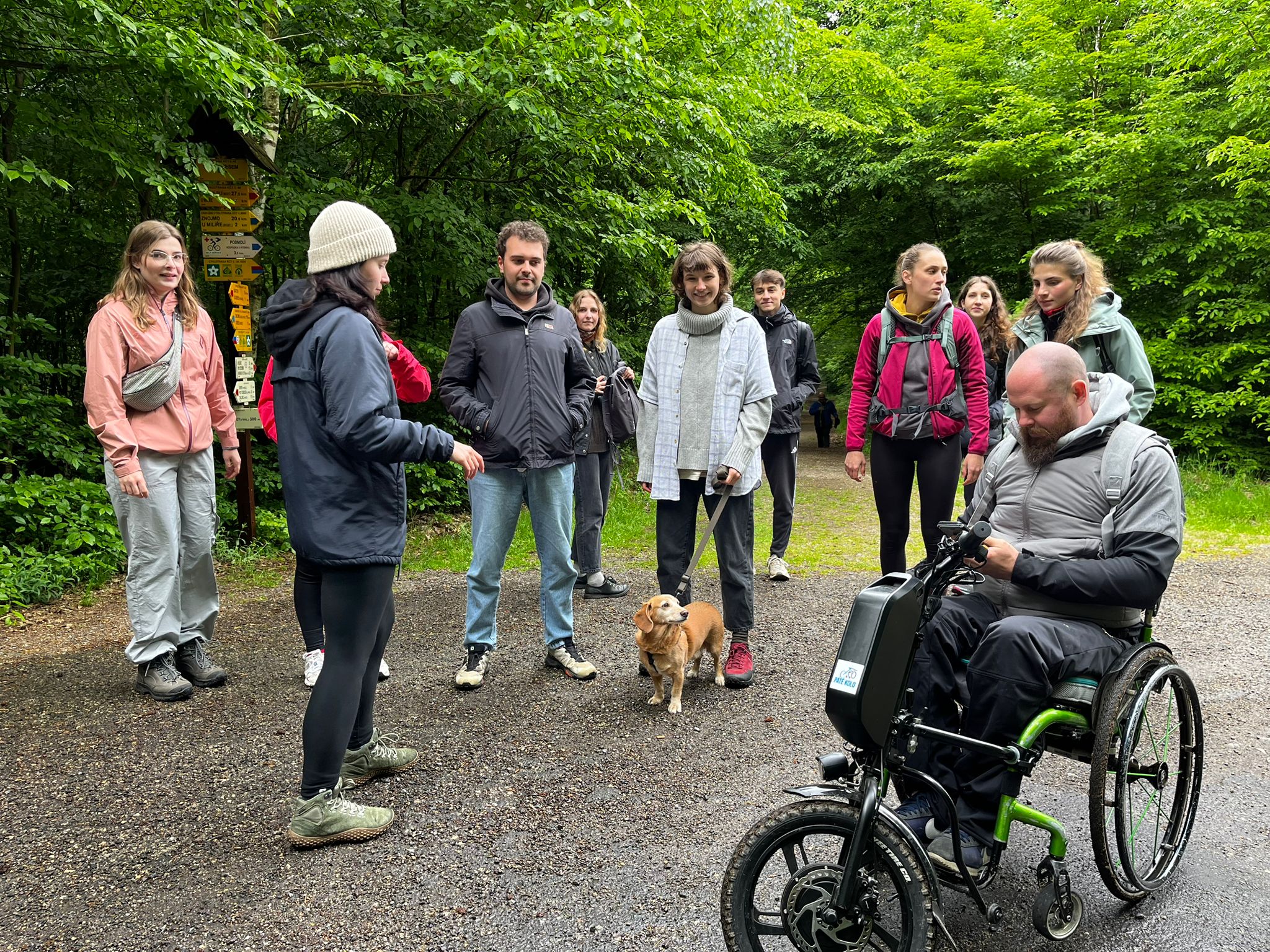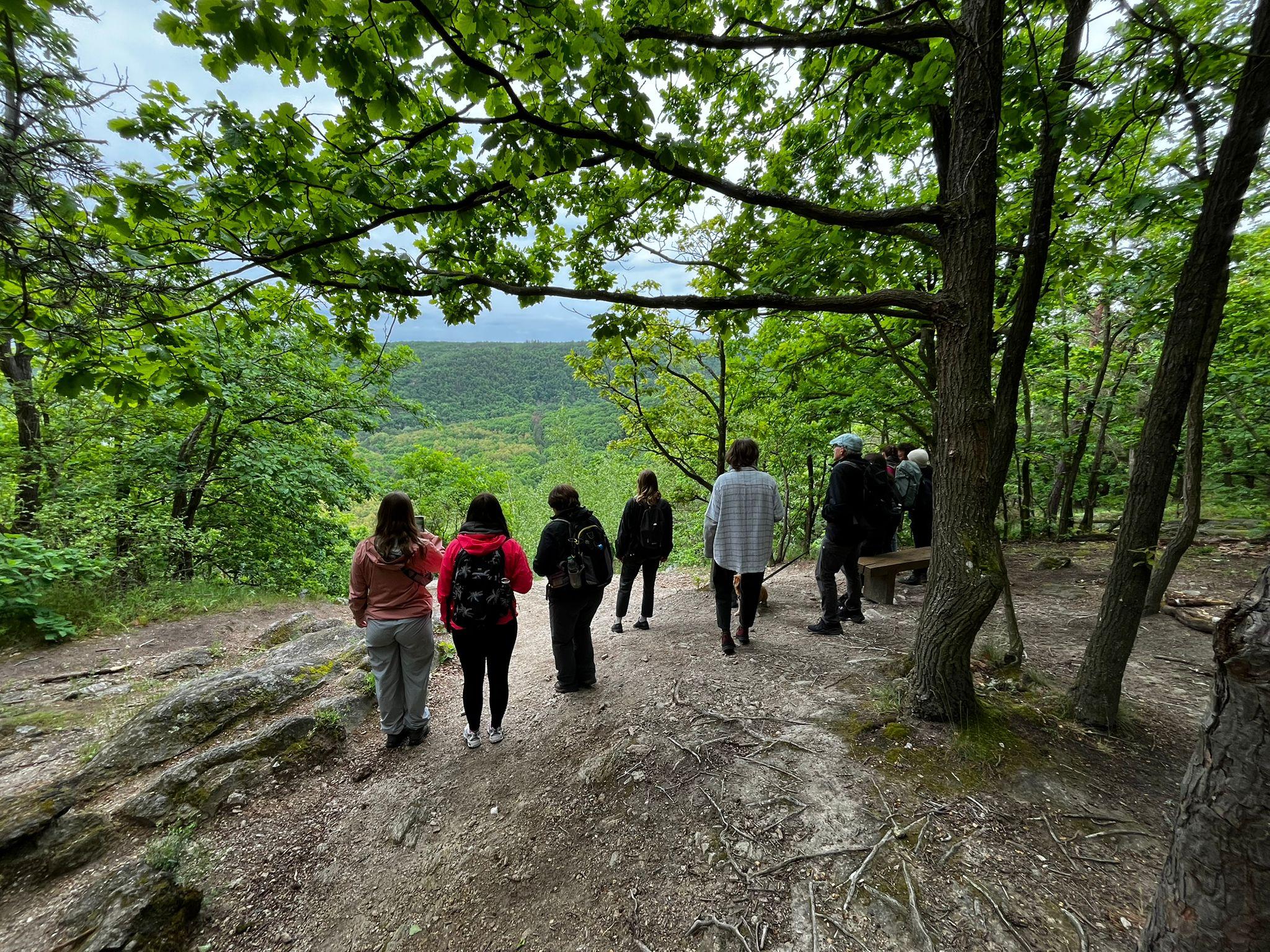At the end of April and beginning of May, a series of workshops and field exercises took place, during which students from the Faculty of Horticulture at Mendel University in Brno, with the help of CENIA, actively participated in the CE-Spaces4All project, and now we have the opportunity to see the results. The project aims to improve the accessibility and usability of public spaces for all groups of the population, including people with limited mobility or specific needs. In addition to CENIA and MENDELU, the Podyjí National Park, the Czech Paraplegic Association CZEPA, and the Weinviertel tourist organization from Lower Austria were also directly involved in the collaboration.
The initial meeting took place at the Faculty of Horticulture in Lednice, where students received basic information about the project and were given assignments for the fieldwork. They then went out into the field with representatives of the Podyjí National Park and the Czech Paraplegic Association to experience firsthand what it means to move around in nature alongside a person in a wheelchair. Direct experience with obstacles – from unsuitable surfaces and steep slopes to missing handrails or shelters – allowed students to perceive the landscape from a completely new perspective and provided them with valuable ideas for designing specific solutions.
The following days were devoted to detailed field analysis, during which students sought ways to adapt selected locations in the Podyjí National Park to a wider range of visitors. They presented their initial proposals at an online meeting, where they were evaluated by representatives of CENIA, CZEPA, and Austria’s Weinviertel region. The joint discussion allowed experts from various fields to share their experiences and provide students with important feedback.
The final presentation of the students’ work brought a whole range of specific proposals. For the Havraníky and Čížov locations, the students prepared landscape studies that include new barrier-free trails, a revision of existing routes according to the methodology of the Czech Tourist Club, and proposals for accessible viewpoints, footbridges, shelters, and street furniture. They placed great emphasis on the use of natural materials, the sensitive integration of elements into the landscape, and the modernization of the information system – from QR codes with audio recordings to tactile elements for the visually impaired. There are also proposals for barrier-free toilets and parking spaces.
The common goal of all solutions is to enable not only experienced hikers, but also families with children, seniors, and people with limited mobility to move around the national park. The project clearly shows that creating an environment accessible to everyone is not only possible, but also feasible – if expertise, practical experience, and interdisciplinary cooperation are combined.
Two groups from Mendel University in Brno participated in the work:
The Havraníky group led by Doc. Dr. Ing. Alena Salašová: Klára Bábalová, Hana Chourová, Anežka Zahradníková, Jan Sedláček, Samuel Skorodenský.
The Čížov group led by Ing. Darek Lacina, Ph.D.: Aneta Janíčková, Agáta Samková, Markéta Šlíglová, Tereza Korhoňová, Karolína Králová.
More information about the entire collaboration and specific proposals for changes can be found in this article.

